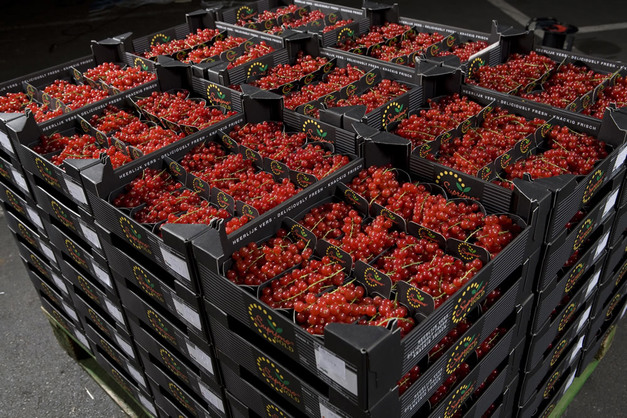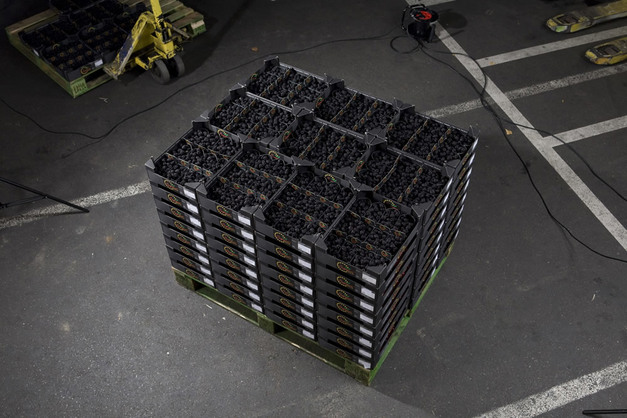
Unburdening is key to Veiling Zaltbommel's philosophy. This Dutch cooperative considers both the buyer and the grower in several ways. For example, growers were recently offered a switching service. "This isn't a brand new thing. Places like banks, energy, and insurance companies have been doing this for some time, and we've jumped on that bandwagon," begins director Gerard van den Anker.

When a grower wants to change cooperatives, the administration that must be done at the old and new organizations can take quite some time. "When growers join us, we now take care of that. June is the month to switch, with termination often happening before July 1. We're doing well as an auction and broker and want even more growers and buyers to benefit from that. That's why we're publicizing this new initiative."

Auction and broker
Gerard says the auction is noticeably growing, both volume and sales-wise. "More and more parties know where to find Veiling Zaltbommel for auctioning and mediation. But you must balance supply and demand, so we have many discussions with growers and buyers. Wholesalers, greengrocers, and market vendors are the true auction buyers. Our brokerage service can be of significance to retailers. They can usually load directly from growers using a service provider," he says.

Even though some parties stopped doing auction sales in the past, Gerard is convinced this marketing technique still appeals to and can benefit many growers. "There are certainly still genuine 'auction growers' who pay extra attention to their product and therefore prefer not to be put in a block."
"They rather sell per lot, i.e., by grower number. Auction sales reward growers who try extra hard, whereas in a block, everyone gets the same price, regardless of quality differences. Buyers, too, can benefit from lot sales because they can choose from which grower to buy their product," Van den Anker says.
Joining forces with Service2Fruit
Just like market demand is often bundled via purchasing organizations making a solid case for themselves regarding growers, Veiling Zaltbommel is now trying to join forces with the online trading platform Service2Fruit. They want to present themselves well on the market's supply side. This is a pilot for now, but if all goes well, a further rollout is planned.
"Earlier this week, we organized an information evening about this. You could consider our organizations as competitors, but we primarily see a cooperation opportunity that offers growers more possibilities. Unlike the demand side, the supply side in the Netherlands is still very fragmented."
"You can purchase products everywhere. We could, of course, keep fighting and competing with each other based on price. Or we can join forces to get growers the best price from the market. We have to because costs have recently risen faster than yield prices, and there are more risks," Gerard explains.
Dynamic soft fruit market
Lastly, he offers an overview of the current soft fruit market. "Raspberry cultivation has been slow to start. There's plenty of demand, but supply is fairly limited. With redcurrants, it's just the opposite: plenty of supply with little demand. Blackberry growers, in turn, are enjoying a stable market. That's going very well—the same with strawberries. There have been no major price drops yet. Growers like that."
"They're increasingly betting on new varieties, spurred on by various causes, including expensive energy, changing weather conditions, and wanting to avoid labor peaks. Elsanta remains the main variety, but types like Malling Centenary, Sonsation, Falco, and Lambada allow for staggered harvesting. Customer demand is, in fact, shifting along with growers' choices," Gerard concludes.
For more information:
Gerard van den Anker (director)
Veiling Zaltbommel
28 Stationsweg, 5301 KH
Zaltbommel, the Netherlands
Tel.: +31 (0) 651 012 063
Email: g.vandenanker@veiling-zaltbommel.nl
www.veilingzaltbommel.nl
